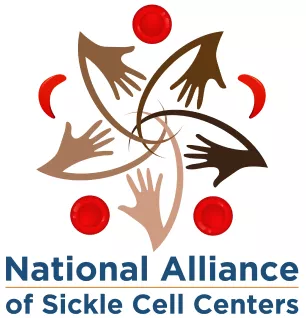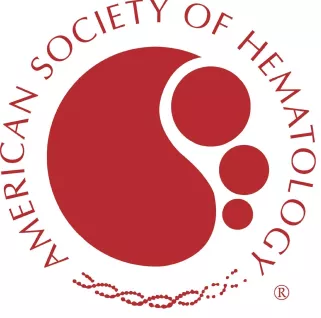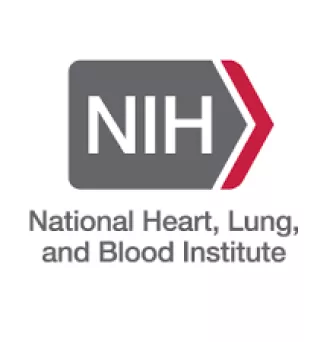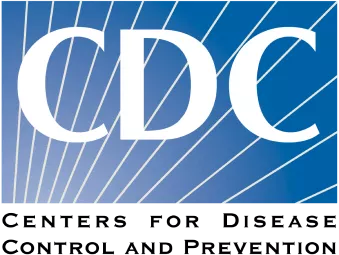Our Approach to Sickle Cell Disease




As the first Sickle Cell Center and Sickle Cell Research Laboratory in the U.S., Montefiore Einstein has been at the forefront of advancing care for sickle cell disease for over 70 years. Our mission is to provide comprehensive, exceptional, compassionate and individualized care for people living with sickle cell disease and significantly contribute to the development of novel treatments and potential cures.
Our center is the second largest in the country and the largest in New York City. We have treated over 1,208 patients from the Bronx, Hudson Valley, Westchester, New York City and beyond.
Our doctors have extensive experience in treating sickle cell disease and understand the unique challenges patients face. We are dedicated to providing personalized, holistic treatment plans that fit each patient’s needs while advancing the field through pioneering research initiatives.
By combining innovative therapies with proactive patient outreach, we strive to elevate the standard of care and significantly enhance outcomes for those living with sickle cell disease. This integrated approach allows us to address both immediate patient needs and long-term advancements in treatment.

Services & Programs
Montefiore Einstein is at the forefront of providing comprehensive care and support for individuals living with sickle cell disease (SCD). Our dedicated team of experts offers a range of specialized services tailored to address the unique needs of patients with SCD. From diagnosis to long-term management, we are committed to delivering high-quality care that improves the health and quality of life for individuals affected by this condition.

Gene Therapy Certified Treatment Center
We are one of the few gene therapy certified treatment centers for sickle cell disease in the country. Gene therapy is an FDA-approved treatment that has been shown to cure sickle cell disease by correcting or replacing the gene responsible for producing abnormal hemoglobin. For eligible patients affected by the condition, this innovative approach holds hope for providing a long-term cure and improving their quality of life.
Sickle Cell Disease
Treatments We Offer
Our dedicated team understands the intricate nature of sickle cell disease, employing comprehensive treatment strategies to ensure optimal care and improved quality of life for individuals facing the challenges of this condition.
- Disease-modifying therapies
- Oral and intravenous iron chelation
- Gene Therapy Certified Treatment Center
- Medical Cannabis Clinic
- Phase II and Phase III clinical trials for new medications
- Preventive care
- Transfusion therapy
- Sickle cell haploidentical allogeneic and allogeneic stem cell transplants

Pioneers in the
Science of Sickle Cell
Disease Care
Advances in sickle cell research have revolutionized our approach to patient care, enabling us to offer individualized solutions and innovative treatments to address the diverse complications of this complex disease.
Montefiore Einstein was one of the first contributors to epigenetics, the study of how environmental factors influence gene expression in inherited diseases like sickle cell. We continue to investigate sickle cell disease through genetic mapping, microvascular studies and multifaceted research initiatives.
Through a deeper understanding of genetic variations, disease mechanisms and personalized risk factors, we can now develop precise care plans that optimize outcomes for each patient.
Largest Sickle Cell Center in New York
-
1st
Center in the U.S.–Treating Sickle Cell Since the 1950s.
-
2nd
Largest Sickle Cell Center in the Country
-
1,208
Patients Treated
-
97
Pediatric to Adult Transition Patients

Pain Management & Power Over Pain (POP) Clinic
Sickle cell pain is both acute and chronic and requires different treatment regimens. We prioritize access to prescriptions and pain management to avoid pain crises or withdrawal. With our Power Over Pain Clinic, Medical Cannabis Clinic and timely refill of prescriptions, our dedicated team strives to alleviate chronic pain, improve quality of life and empower patients with effective strategies for managing pain associated with sickle cell disease.

Pediatric Sickle Cell Disease Program
The Sickle Cell Program at the Children’s Hospital at Montefiore Einstein (CHAM) provides comprehensive, family-centered care to more than 700 children diagnosed with sickle cell disease. Our dedicated team of experts, including hematologists, pediatric specialists, advanced practice practitioners, pain specialists, nurses, social workers, psychologists and child life therapists, collaborates closely to provide innovative and compassionate care. This includes state-of-the-art blood group genotyping and novel MRI brain imaging techniques, as well as access to the latest evidence-based therapies, novel agents on clinical trials and curative bone marrow transplant and gene therapies. We also extensively advocate for sickle cell disease patients who are eligible for New York State Medicaid-funded Health Home care managers.

Transition Care for Teens & Young Adults
Our Transition Clinic helps young adults smoothly transition from pediatric to adult hematology care by maintaining close partnership with our pediatric team at CHAM. We monitor patients diligently, ensuring they attend appointments, take medication as prescribed and maintain good organ health as they transition into adulthood. Learn more about our Transition Clinic here.
Your Sickle Cell Disease Team
Our experts are renowned for their unparalleled care of individuals affected by sickle cell disease. Managing the complexities of this condition demands a seamless integration of diagnostic precision, pioneering treatment alternatives and comprehensive psychological and social support. Our world-class sickle cell team is dedicated to navigating these challenges with excellence, ensuring a holistic and patient-centered approach to care.
About Sickle Cell Disease
Sickle Cell Disease
Sickle cell disease (SCD) is a group of inherited disorders affecting red blood cells, which normally transport oxygen throughout the body. In individuals with SCD, abnormal hemoglobin causes the red blood cells to take on a rigid, sickle-like shape, leading to early cell death and a chronic shortage of red blood cells. These deformed cells can obstruct blood vessels, resulting in pain and various complications, including infections, acute chest syndrome and stroke.
Thalassemia
Thalassemia is a form of sickle cell disease in which the bone marrow doesn’t produce enough normal hemoglobin, the protein inside red blood cells that carries oxygen. This leads to a condition called anemia, which presents mild to severe symptoms in both children and adults. The type and severity of thalassemia will cause different types of complications.
To learn more about SCD and Thalassemia, visit our Patient Resources.
Patient Testimonials

Patient Resources
We are dedicated to providing our patients with the resources they need to manage their condition effectively. From support groups and community outreach programs to home services and pain management, we strive to empower patients with the knowledge and tools necessary to navigate their journey with sickle cell disease confidently.
Specialties
The management of sickle cell disease requires expertise from various specialties, all of which are readily accessible within our comprehensive program.
Cardiology
Access care for cardiomyopathy, microvascular disease, cardiac hemochromatosis, arrhythmias and acute chest syndrome.
Hepatology
Access care for sickle hepatopathy, gallstones, intrahepatic biliary obstruction and extra biliary obstruction.
Infertility
Address issues related to conception for both women and men.
Endocrine
Access treatment for thyroid disease and diabetes.
Integrative Medicine / Acupuncture
Incorporate therapies addressing the mind, body and spirituality, as well as biofeedback and music therapy.
Maternal Fetal Medicine
Manage difficult pregnancies, pain and thrombosis during pregnancies, hypertension, preeclampsia, fetal growth delay and low volume of amniotic fluid.
Nephrology
Access treatment for hyperfiltration, proteinuria, renal insufficiency and renal failure.
Neuroscience
Access care for micro and macro aneurysms, moyamoya, stroke and intracerebral subdural hemorrhage.
Ophthalmology
Manage complications such as retinopathy, segmental ischemia, atrophy, neovascularization, vitreous hemorrhage and proliferative retinitis.
Orthopedics
Manage complications such as osteomyelitis, avascular necrosis and spontaneous fractures.
Psychiatry
Access care for depression and anxiety through therapy, including cognitive behavioral therapies.
Pulmonary/Pulmonary Hypertension
Manage complications such as pulmonary hypertension and pulmonic/tricuspid valvular regurgitation.
Thrombosis
Recognize and treat deep venous thrombosis and blood clots in the lung.
Urology
Access treatment for kidney problems and priapism.
Wound Care
Access leg ulcer wound care.







